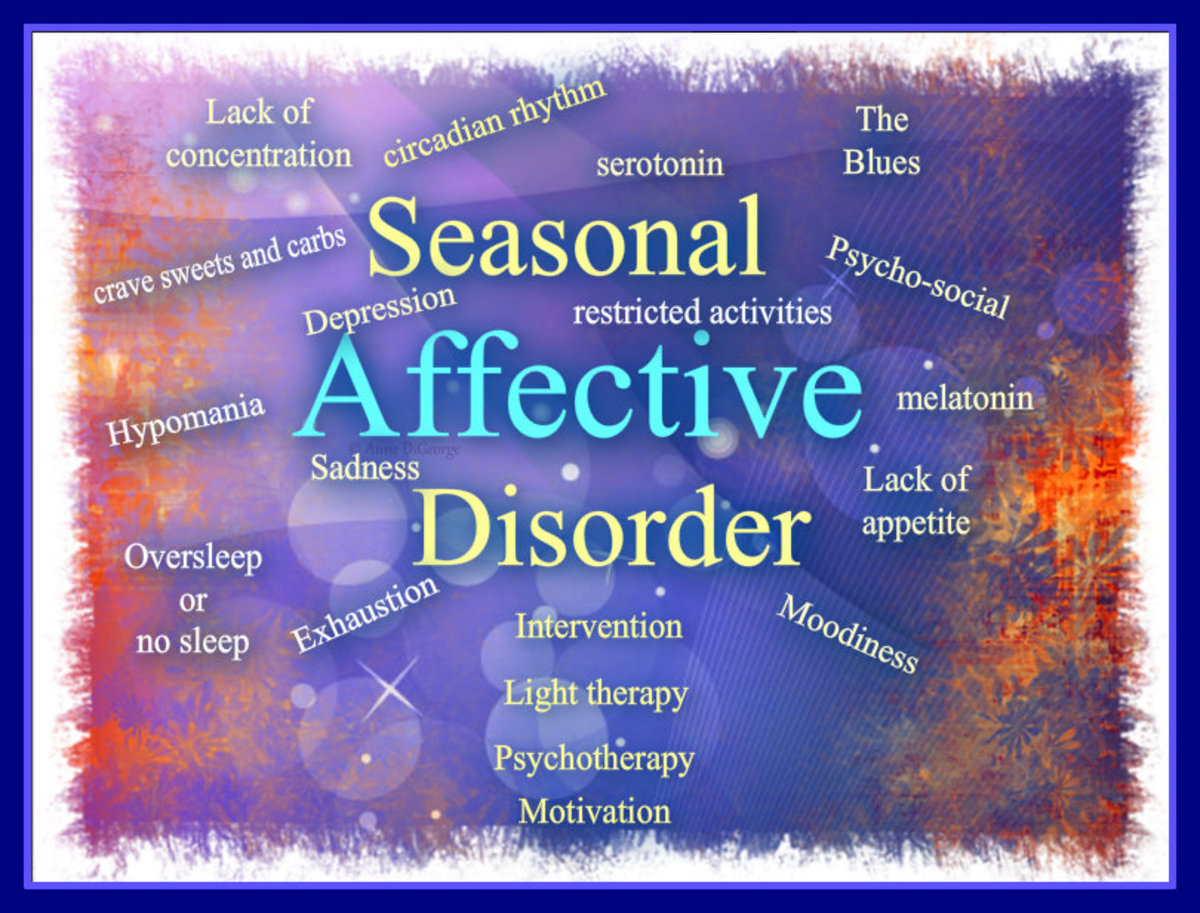Clinical Depression Types

Depression symptoms affect people differently. Some types of depression have underlying causes that are easier to identify than other depression types. Though antidepressants and therapy are the typical depression treatment, some clinical depression types require additional treatment. In order to consider which treatment for depression would be most beneficial, the person suffering from depression should understand their type of depression and how that affects treatment options.
Major Depressive Disorder
Major Depressive Disorder (MDD) is the classic clinical depression that can be caused by a chemical imbalance of the brain, an inability to cope with loss or other life events, or both. Symptoms of clinical depression include depressed mood, inability to feel pleasure, decreased interest in activities that were previously pleasurable, fatigue, insomnia or hypersomnia, difficulty concentrating, weight loss or weight gain, slower movement or agitated movement of the body, feelings of worthlessness or guilt, and thoughts of suicide or death. Everyone has days during which the person may feel depressed or lack motivation, but people who have major depressive disorder experience these symptoms almost every day for at least two weeks.
The person's symptoms and history of depression describe the type of major depressive disorder. Episodes of depression are classified as "recurrent" if the person has had a previous depressive episode. Otherwise, the depression is classified as "single episode." The psychiatrist may include "severe" in the diagnosis if the symptoms are persistent and greatly limit the person's ability to function. The psychiatrist can include "mild" or "moderate" as part of the diagnosis if the condition is not severe. The diagnosis of depression can include whether or not the person is experiencing psychotic symptoms such as hallucinations or delusions due to the depression.
Major Depressive Disorder is commonly treated with a combination of antidepressant medication and therapy. Since major depressive disorder can be biological and hereditary, the person may not have the need for long-term therapy. Biological depression can occur even when nothing in the person's life seems to have caused the depressed mood and other depression symptoms. If the person is having psychotic symptoms, the psychiatrist may prescribe an antipsychotic medication along with the antidepressant to treat the symptoms of depression. If the depression is recurrent, the psychiatrist may prescribe a mood-stabilizing medication like Depakote or Abilify to help prevent depressive episodes.
Bipolar II Disorder
Episodes of depression are common for many people who suffer from bipolar II disorder. Bipolar II disorder is characterized by recurrent episodes of depression and episodes of mild mania or mixed mania. This type of bipolar disorder is often considered less severe than bipolar I disorder, but bipolar II can be just as severe if not more so since the suicidal thoughts during episodes of depression can be severe and lead to suicide or suicide attempts.
The main difference between bipolar I and bipolar II is that the predominant characteristic of bipolar I is episodes of mania. An episode of mania causes symptoms of feeling euphoric of irritable, agitated body movements, increased talking, decreased need for sleep, increased work towards goals, racing thoughts, increased participation in activities solely for pleasure without regard for the consequences, and difficulty concentrating.
There can be a considerable amount of overlap between the two types of bipolar disorder. A person may be diagnosed as bipolar II and then have a manic episode which would change their diagnosis to bipolar I. Someone with bipolar I may also suffer from severe episodes of depression. Bipolar II disorder is often treated with a combination of antidepressant medication, mood-stabilizing medication, and therapy.
Dysthymia
Dysthymia is a mild but persistent form of depression. The symptoms are similar to symptoms of major depression but not as severe. For a diagnosis of dysthymia, the symptoms must last for at least two years. Like other mood disorders, dysthymic disorder can cause difficulty in functioning. The person may be inclined to isolate from social relationships or struggle in the workplace. Like major depressive disorder, dysthymia is often treated with a combination of therapy and antidepressant medication.
Seasonal Affective Disorder
Seasonal affective disorder (SAD) is a depression type that is recurrent and occurs at the same time every year. Most people with seasonal affective disorder develop symptoms of depression in the fall months that may last into the winter. Some people with seasonal affective disorder experience depression every spring and into the summer. Reduced sunlight is thought to play a primary role in the causes of seasonal affective disorder. A lack of sunlight can cause decreased serotonin levels. Serotonin is a chemical of the brain which is thought to be responsible for depression when the levels are abnormal. A lack of sunlight can also cause abnormal melatonin levels. Low levels of melatonin can cause disturbances of mood and sleep. Seasonal affective disorder treatment can include antidepressant medication, melatonin supplements, psychotherapy, and light therapy. Light therapy is a way to compensate for the decreased exposure to natural sunlight. The person suffering from seasonal affective disorder sits near a phototherapy light box which may help regulate the level of melatonin and encourage the brain chemicals to return to normal levels.
Postpartum Depression
Postpartum depression typically occurs months after childbirth or a pregnancy loss. A woman experiencing postpartum depression has five or more symptoms of depression that last for at least two weeks. Postpartum depression is thought to be caused by the sudden and drastic changes in the woman's hormones following a pregnancy. Postpartum depression may be treated with antidepressants though this can be problematic if the woman is breastfeeding. Sometimes, counseling is recommended to provide emotional support.
Complicated Grief
Some people propose that grief that has an unusually long duration and intensity be included in the Diagnostic and Statistical Manual V (DSM-V). The form of grief that caused intense distress, loneliness, sleep disturbance, and intense intrusive thoughts about the loss more than a year after the death of a loved one has been called complicated grief. When I was studying psychology in college, this was referred to as abnormal grieving or pathological grief. Complicated grief has a definite cause of an inability to cope with the loss. Therefore, the complicated grief treatment may be more focused on coping skills and cognitive behavioral therapy to help the person move through the stages of grief.
Depression Secondary to Other Psychiatric or Medical Conditions
Sometimes, depression is caused by another condition or a medication. Anxiety disorders and depression often go together. It can be extremely depressing to live in the shadow of anxiety or fear. The use of some medications, alcohol, or illegal drugs can cause symptoms of depression. Depression can be a sign of Alzheimer's disease, chronic fatigue syndrome, and other medical conditions. When a person is suffering from depressive symptoms due to another condition, the physician may prescribe an antidepressant to alleviate those symptoms. Symptoms of depression due to the psychological stress of an illness may require therapy to help the person cope with the illness.
This article is a very basic guide to how the different types of depression affect the treatment for the depression. People should discuss the depression treatment options with their doctors.








